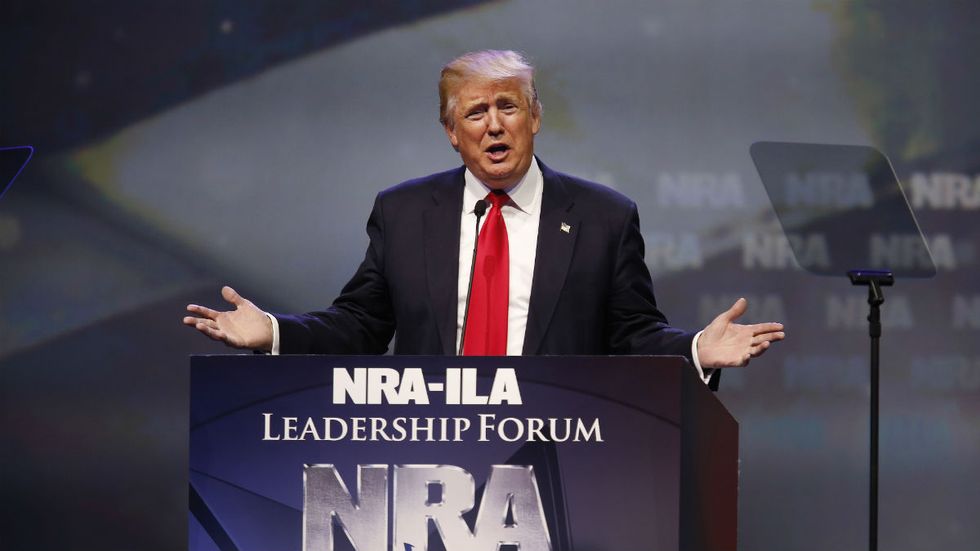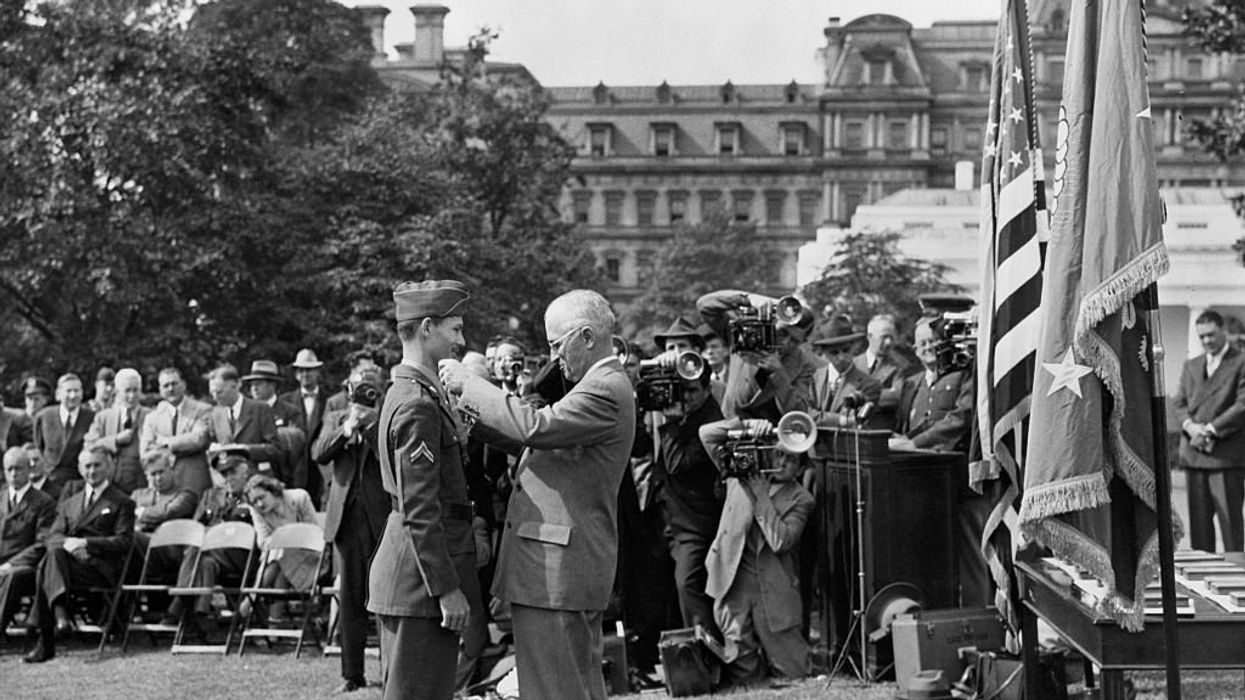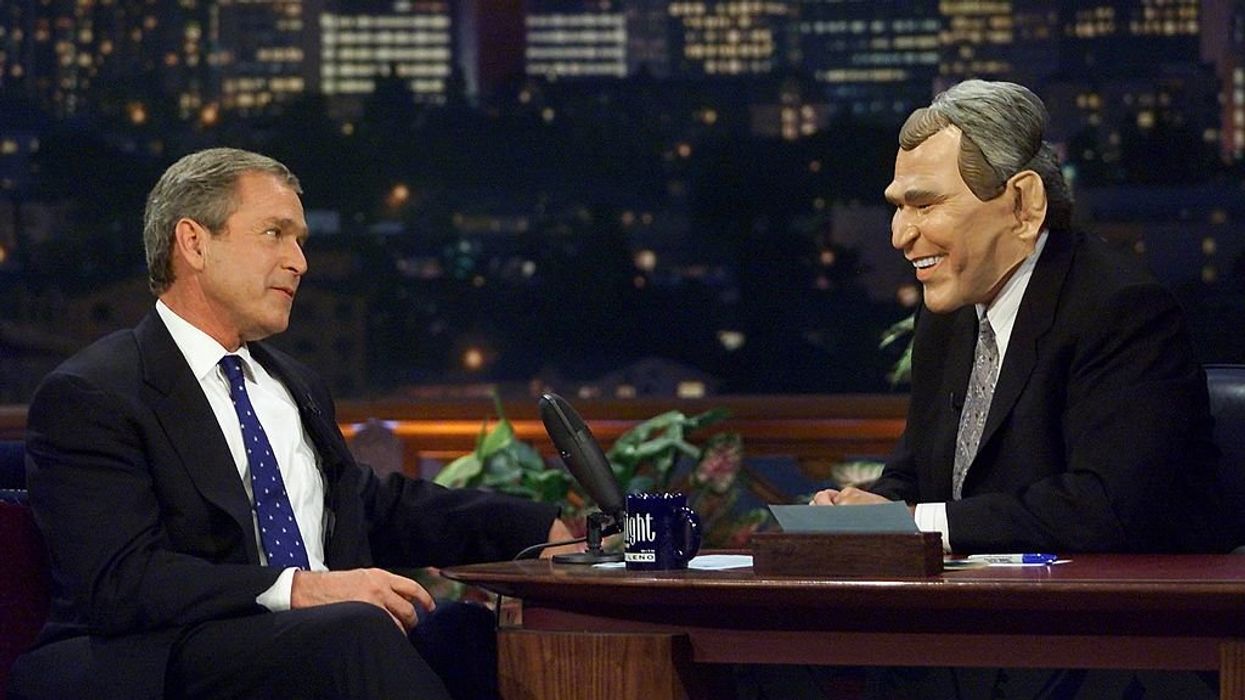
© 2024 Blaze Media LLC. All rights reserved.
Trump says he will 'seriously look' at banning 'silencers' after Virginia Beach shooting. Here's why that makes no sense
June 05, 2019
A gun suppressor (or "silencer") was used by the gunman in the recent shooting in Virginia Beach; now gun control orgs are taking aim at so-called "silencers," and even President Trump is talking about a ban.
In a recent interview from the United Kingdom, President Trump said that he would "seriously look" at banning gun suppressors. He explained that he doesn't "like" suppressors, but also doesn't "love the idea" of banning them.
Perhaps the president will err against the gun-control impulse to "do something" by banning something. But Second Amendment advocates can be excused if they're a little wary following the whole bump stock ban fiasco, where legally purchased hardware was mandated for destruction or confiscation by the executive branch without so much as compensation.
The biggest problem for suppressors and people who use them legally — as with a lot of firearms hardware — is that they get a bad reputation due to rampant misinformation.
Here are some facts to guide this latest debate.
The biggest point to make about suppressors is that they shouldn't be called "silencers" because they don't actually silence anything. That quiet "pew pew" sound heard in mafia and spy movies is fiction. Yes, the devices suppress the sound of a gunshot, but gunshots are still very loud even when suppressed.
When a gunshot goes off, the rapid expansion of gases from the combustion of the gunpowder in the cartridge causes a loud noise. Suppressors redirect that gas and ease its introduction to the surrounding environment, much like the way the muffler works on your car. (In fact, both devices were invented by the same person: Percy Maxim).
But just like a muffler can only muffle so much of the sound created by internal combustion, the same is true for a suppressor. The noise reduction is somewhere around 30 decibels, which brings the eardrum-busting noise of a gunshot down to the level of a jackhammer.
Also, suppressors cannot stop the whip-like crack that a projectile makes as it breaks the sound barrier. That's why the gunshots were still clearly recognizable on the police scanner tapes from the Virginia Beach attack.
That's why suppressors are far more useful at protecting recreational shooters' hearing than they are at evading law enforcement, as explained in the following video.
In fact, in 2017, now-presidential candidate Sen. Kirsten Gillibrand, D-N.Y., got a "Three Pinocchios" rating from the Washington Post for suggesting that suppressors make police "less likely" to track down an active shooter.
"[A]lthough the popular name of this accessory is a silencer, foes of the law such as Gillibrand should not use misleading terms such as 'quiet' to describe the sound made by a high-powered weapon with a suppressor attached," WaPo's fact-checkers concluded. "There is little that’s quiet about a firearm with a silencer, unless one also thinks a jackhammer is quiet."
Finally, it's already a real bureaucratic pain to get a suppressor. The process to obtain one legally is similar to the process for legally getting a machine gun under federal law and is governed by the same over-arching statute: The National Firearms Act.
Purchasers have to be at least 21, be able to pass a background check, live in a state that hasn't banned them, send an application with fingerprints to the Bureau of Alcohol, Tobacco, Firearms and Explosives (ATF), wait usually a few months if not longer for approval on the paperwork, and then pay for the $200 federal tax stamp.
There have been legislative attempts to relax that process in the past few years, but those efforts have not yet made it into law.
#mc_embed_signup{background:#fff; clear:left; font:14px}
/* Add your own MailChimp form style overrides in your site stylesheet or in this style block.
We recommend moving this block and the preceding CSS link to the HEAD of your HTML file. */
Want to leave a tip?
We answer to you. Help keep our content free of advertisers and big tech censorship by leaving a tip today.
Want to join the conversation?
Already a subscriber?
Nate Madden
Nate is a former Congressional Correspondent at Blaze Media. Follow him on Twitter @NateOnTheHill.
more stories
Sign up for the Blaze newsletter
By signing up, you agree to our Privacy Policy and Terms of Use, and agree to receive content that may sometimes include advertisements. You may opt out at any time.
© 2024 Blaze Media LLC. All rights reserved.
Get the stories that matter most delivered directly to your inbox.
By signing up, you agree to our Privacy Policy and Terms of Use, and agree to receive content that may sometimes include advertisements. You may opt out at any time.



